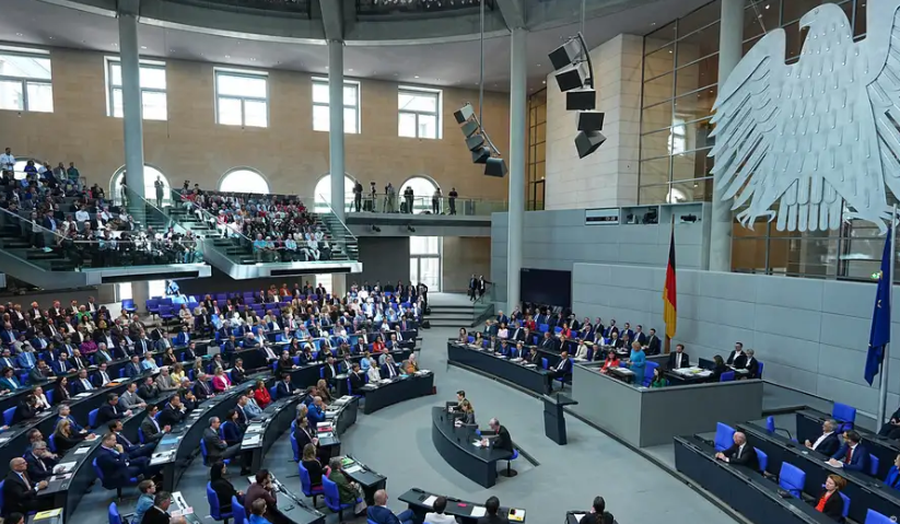
The Bundestag has 630 members, 100 fewer than the previous one. But how are members paid, what is their income, and how is their pension regulated?
Monthly income of MPs
The income of Bundestag members consists of several parts in Germany: The basic salary increases every year on July 1 and is currently 11,227 euros per month, or about 135,000 per year.
This is the gross amount of basic payments, so taxes, health insurance, and pensions are paid from this amount... Depending on family status and other income, a member of parliament is left with about eight thousand euros net per month or a little more.
But there are also other payments for additional expenses, such as for an office in the MP's constituency or payment for a residence in Berlin, where the Bundestag is located. For these expenses, MPs receive an additional amount - currently 5,350 euros per month, or 64,200 euros per year.
This money is not subject to taxes, while the amount of this money increases every January 1, i.e. at the beginning of the year. There are no special fees for deputies to attend, or daily allowances in the Bundestag, as is common in many other parliaments. So there is no fee for attending sessions.
Equipment and travel expenses
Office equipment, telephone contracts and work equipment are usually paid for from other funds. For office equipment, telephones and similar equipment, each MP has up to 12,000 euros available per year. For these so-called "material costs", the money is paid only by invoice, i.e. the MP must submit invoices for the expenses.
Travel on German trains is free for MEPs, regardless of whether they are travelling for official reasons or for work or business. Receipts must be submitted for air travel.
Every member of parliament needs assistants. Assistants are granted additional funds of up to 25,874 euros per month. The calculation is carried out directly by the Bundestag administration, so the member of parliament does not personally pay the salaries of his or her employees. Relatives, spouses, family members and former partners cannot be paid from these funds, due to the risk of misuse.
When added together, a member of the Bundestag costs taxpayers at least half a million euros a year.
Additional income
Some MPs earn even more than that. Parliamentary groups can pay so-called functional payments from their own funds. This compensates for a greater workload, for example, with a parliamentary secretary. The amount of these payments is determined by the parliamentary group itself.
MPs are also allowed to carry out so-called secondary activities. If MPs earn income from this, this income must be declared transparently - if the activity is paid for by more than 1,000 euros per month.
Severance pay
When their term in the Bundestag ends, MPs are paid one month of severance pay, a so-called transitional payment, equal to the basic parliamentary salary, for each year spent in the Bundestag - which can go up to a maximum of 18 months.
From the second month after the end of their mandate, all other income - including that from private sources - is included in the transitional payment.
As for pensions, former MPs receive a little over 1,000 euros in pension for a four-year term. But most MPs serve in this capacity for several terms, which means that their pension also increases by this amount, depending on the terms./ DW
(A2 Televizion)











